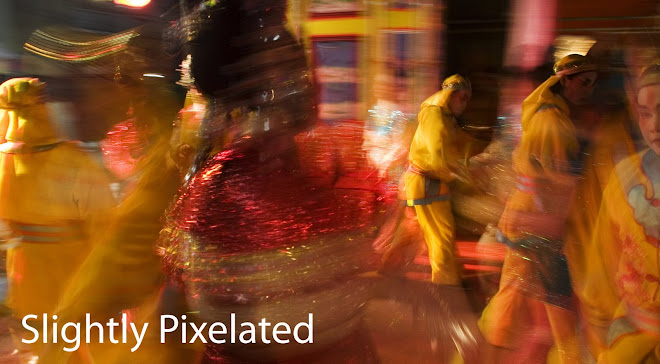This morning I read in the IHT:
"In 2008 the Pentagon's spending on the wars in Iraq and Afghanistan reached US$ 685 billion."
Normally a piece of information like that would snag in my mind for a few seconds before the next fact shunted it into the oblivion.
But let's stop for a moment and imagine what that US$ 685 billion represents. Let's pause to think about what these wars, which have cost America so dearly, are about.
Let's imagine, too, what might have been if such a fortune had not been poured into war.
US$ 685 billion spent more creatively might have saved countless lives, educated millions, fed millions, contributed to research into curing the diseases that afflict millions, been invested into solving one of the most pressing challenges the planet faces: that of developing sustainable energy technologies that are not dependent on the finite pollutants disrupting our fragile ecosystem.
How did such a huge sum of money come to be spent on wars that we all know are un-winnable, especially when the very definition of victory in these conflicts eludes us? Victory in Iraq and Afghanistan, our military tells us, now means not being defeated.
The story of our recent warlike folly, and America's decline, began on a clear September morning in 2001, when a group of Al Quaeda fanatics flew passenger jets into the World Trade Center in New York. Some 4,000 died as a result of that tragic gesture of hatred.
Like an enraged giant, goaded by a vengeful and insecure political elite, America lashed out. The attacks of 9-11 triggered a global War on Terror which has seen the Western world pour billions upon billions (many more billions globally than the US$ 685 billion America has spent in Iraq and Afghanistan) on fighting Terror.
Today the War on Terror is an integral part of our lives. Our leaders tell us that we must keep up the fight against Terror. Almost daily our troops lay down their lives doing battle against Terror.
But what a strange thing the War on Terror is. For Terror is not a State. It has no insignia. It has no borders. It's more like an emotion than an object you can lock your sights on and shoot down. Yet we have poured billions of dollars into the bombs, bullets and lives which are the price, we are told, of defeating Terror.
When coalition bombs resulted in the deaths of hundreds of thousands of civilians in Iraq we did not call that Terror. We politely called that 'collateral damage'. For how can one fight against Terror if one is the perpetrator of Terror oneself.
The reality, of course, is that the Terror we are being told we are fighting against is our own Terror. It is the West's Terror of the intense and incomprehensible fury of the Islamic world, of an enemy that is so full of hate that its foot soldiers are ready to detonate themselves as living bombs to further their cause.
In February 2003, Colin Powell, a man of honour we believed, stood before the UN Security Council, and an incredulous planet, to tell us that Iraq, contrary to the reports of UN inspectors, did indeed have weapons of mass destruction. Our Presidents and Prime Ministers, grim faced and solemn in their tone, looked us in the eye and told us that Iraq was a threat, that we had to act.
That these declarations, that Powell's earnest expose of Iraq's menace, were pure lies are facts that have already become blurred in our minds. Our governments have pummeled our consciousness with the message that Terror is still out there, that the war must continue, that victory is in sight.
When we sit down with friends over a drink and talk, we all know that none of this makes sense.
How is it that America has spent US$ 685 billion on a war that was justified with a lie - a sum almost as vast as that recently mobilised to bail out America's financial institutions?
How is it that the more we fight against Terror, the more afraid we are that Terror will come and get us; on a plane, in the subway, on holiday in some far off land? The more we fight for our security the less secure we feel.
The real battle is not one which sees us pitted against our fellow men. The war the West must win, I believe, is that which would allow us to vanquish our own fear of our enemies (for enemies there are) allowing us to view our planet, with all its beauty, in a new spirit of creativity and optimism.
After such dark years, it is tempting to see America's new President elect in a messianic light. Just a year and a half ago, the thought of Obama becoming President seemed about as likely as a meteorite striking Earth.
But now that the meteorite has struck, there is a glimmer of hope that America and its 'coalition of the willing' may now invest their energy in more constructive pursuits than the folly of war.

No comments:
Post a Comment